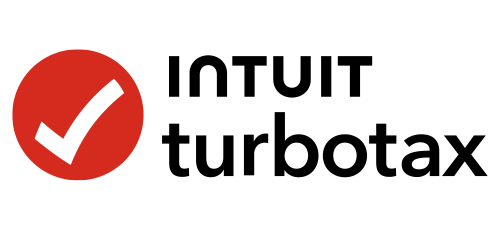Can You Trust AI for Financial Advice? Here’s What to Know
TurboTax Canada
October 20, 2025 | 3 Min Read


A new way to file your business taxes is here!
You might ask artificial intelligence (AI) to map out your next road trip, offer tips on how to train for a marathon, or teach you how to make sourdough, but would you trust it to map out your portfolio and offer financial advice?
A growing number of Canadians are using AI tools for everything from household budgeting to learning about taxes and investing. Not surprisingly, Gen Z is most comfortable using AI tools compared to older generations, recent research shows. 73% of those aged 18 to 34 lead the way in AI usage.
While AI can be a great resource for financial information, you may want to consult a variety of sources before making money decisions. As anyone who has spent enough time online knows, not everything on the internet is accurate. Also, while chatbots can personalize responses to a degree, they still can’t match the nuanced human advice often needed for more-complex financial decisions.
Here are some important considerations when using AI for financial advice.
Key Takeaways
- AI condenses complex financial information quickly and into a format most people can understand.
- While AI can be a great resource for financial planning, it may not be the only way you want to make important saving and investing decisions.
- Advisors and tax professionals will continue to play an important role in personalizing financial planning to suit an individual’s needs and wants.
Benefits of using AI for financial advice
AI is playing an ever-increasing role in making our lives easier and more efficient, including when seeking information about saving and investing. Here are some of the benefits of using AI for financial advice:
- Always accessible: Want to know the difference between a Tax Free Savings Account (TFSA) and a First Home Savings Account (FHSA)? Most AI services can spit out the answer in seconds, at any time of day. That can be helpful if you don’t have the time or money to hire a financial advisor or have nagging questions at 2am when your financial team isn’t working. While the AI information is relatively generic, depending on the prompts it’s given, AI can fill the knowledge gap and help guide you in the right direction.
- Makes complex topics intelligible: A major benefit of AI is that it condenses complex information in a way that most people can relate to. While you might not ask one of the free AI models to complete your tax return, it could quickly find basic information about when you need to file your taxes, for example, or how dividends are taxed differently than other investment income.
- Some personalization: Purpose-built AI tools can provide personalized advice. For instance, if you want to know if you will have enough money to retire at age 65, you could type in your current age, your savings so far, and the number of years to your retirement, and get a rough estimate from various AI models. You may want to think twice about quitting your job based on the response, but it might make your retirement fantasies feel a little more attainable.
- Investor independence: Some investors prefer to source information online because it appears independent of a financial firm selling specific investment products or a style of investing, such as value or growth. With AI, you can learn more about the types of investment products or strategies you might be interested in before finding the right human advisor. It can also help you build your financial knowledge, even after you’ve already worked with an advisor, to help you ask the right questions.
Drawbacks of using AI for financial advice
AI is a powerhouse of information, but it has drawbacks. Here are some reasons why AI can be a useful tool, but may not be the only source you want to consult for financial advice:
- Financial knowledge still matters: It’s sometimes hard to remember, especially given how far the technology has come, but AI is only as good as its prompts. An AI platform might ask you a follow-up question, but will it be the right one? For example, AI might be able to explain the tax advantages of an RRSP versus a TFSA, but it might not be able to offer guidance on which one suits your current financial situation best if it doesn’t know what your financial goals are.
- Outdated information: AI has complicated algorithms that helps it to prioritize information it deems trustworthy. Asking an AI platform to prepare a tax return, for example, might mean that it crunches numbers using last year’s tax brackets, or that you miss out on newly announced credits or deductions. At this specific point in time, AI might not be a reliable accountant.
- AI models lack context: Many AI models have algorithms that don’t always work. The platform may not have access to the most current news and market trends, or they might not have enough financial-specific information to develop a personalized financial or tax plan. This could be crucial, especially when there are frequent changes to tax laws, such as changes to tax brackets, benefit and credit amounts, or the way capital gains are taxed. Even human financial pros sometimes need days or even weeks to make sense of the impact of budgetary changes. Without context, AI can’t be relied on to provide perfectly accurate information in these types of circumstances.
- No behavioural coaching: AI models might be able to look at numbers, but they don’t know what you are feeling. Investors are susceptible to common sociological phenomenon such as loss aversion or herd mentality. An AI model won’t likely tell you that you’re at risk of panic selling when the market drops—if it even knows the market is falling. AI won’t know that you are feeling overconfident when you’re buying stocks at record highs. A human advisor, however, might be able to hear it in your voice or know enough about your personality and your experiences to explain how these and other behaviours could affect your judgment and investment decisions.
How to decide what’s right for you
While many Canadians appreciate the accessibility of AI for financial and tax information, others still value human advice to personalize their saving and investing goals. The two can complement each other to improve financial literacy and investment outcomes when used the correct way. The same is true for your tax returns. Combining smart and trusted tax software with expert human oversight such as with TurboTax Assist and Review, taxes can be easy, accurate and maximize potential savings.
Remember, AI will continue to evolve—for better or worse—but the human element of finances will remain crucial. Money is a very personal, and often sensitive and emotional experience. The future of financial advice will depend on how well technology and human expertise and insight work together to support confident and effective financial decisions.
AI helps you get your feet wet with money and taxes. It can make things easier to understand and speed up the basics. But when it comes to the real decisions that matter, you want a professional you can trust. TurboTax gives you both smart tech and real experts, so you know your taxes are done right.
Get Started
Related articles

© 1997-2024 Intuit, Inc. All rights reserved. Intuit, QuickBooks, QB, TurboTax, Profile, and Mint are registered trademarks of Intuit Inc. Terms and conditions, features, support, pricing, and service options subject to change without notice.
Copyright © Intuit Canada ULC, 2024. All rights reserved.
The views expressed on this site are intended to provide generalized financial information designed to educate a broad segment of the public; it does not give personalized tax, investment, legal, or other business and professional advice. Before taking any action, you should always seek the assistance of a professional who knows your particular situation for advice on taxes, your investments, the law, or any other business and professional matters that affect you and/or your business.









